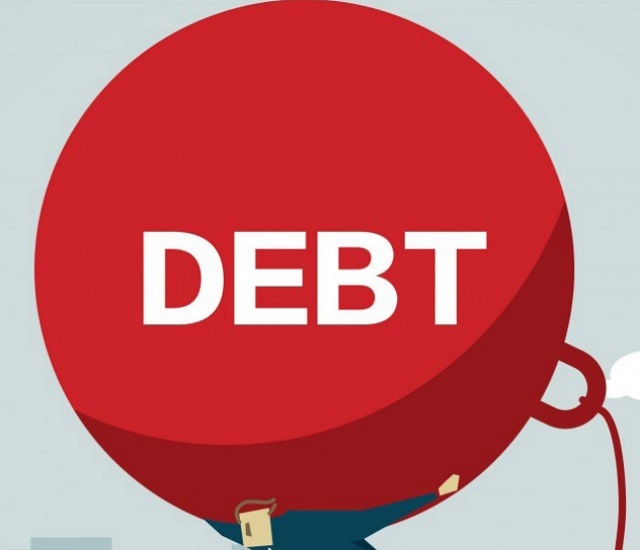
How government’s recent borrowing and spending binge has put us on the highway to Ghana
THE LAST WORD | Andrew M. Mwenda | Ghana is in a serious economic crisis. In November, its inflation rate was 50.3%. On December 19, it all but declared bankruptcy. In a press statement, its government announced it is unable to service its debt, including domestic debt. As early as July, Ghana approached the IMF for emergency support. This has been one of Africa’s great success stories not only in economic reform and growth by also in democratisation. Before we discuss what went wrong in Ghana and how it is very likely to happen in Uganda, let us first compare the two countries.
Ghana has the same land area as Uganda – 238,533 sq km against 241,038 sq km. However, its population is 32m, Uganda, 45m. According to the IMF, Ghana’s GDP is $79 billion ($196 billion in Purchasing Power Parity – PPP). Uganda, $43 billion ($118 billion in PPP). Ghana’s per capita income is $2,521 ($6,244 in PPP), Uganda’s $1,011 ($2,780 in PPP). Ghana’s revenues are $11.3 billion (14% of GDP). However, its budget is $20.3 billion (26% of GDP) giving them public expenditure per person of $650 ($1,600 in PPP). Clearly Ghana spends much more than it earns, giving it a fiscal deficit of 45%. This explains why her debt is $65 billion, 82% of its GDP. Uganda has revenues of $6.04 billion (14% of GDP), a budget of $9.4 billion (22% of GDP) and expenditure per person of $220 ($604 in PPP). So, Uganda’s budget deficit is 36%. Our debt worth 22.2 billion is 52% of our GDP.
Thus, Ghana is a more than twice richer country than Uganda in almost every indicator. The two countries discovered oil almost at the same time. Ghana moved to exploitation within six years while Uganda has taken more than 16 years. Yet Ghana’s relative wealth has not saved it from financial crisis. If we are not careful, Uganda will soon be joining Ghana in the ranks of the bankrupt. Why? Because when Ghana got its fingers on oil, the country began acting like a drunkard, sponsoring lavish public expenditures on every big and small idea that came into the politicians’ heads.
In 2020, Uganda’s revenues plummeted due to the COVID lockdown. Rather than revise the budget downward, government maintained it, borrowed heavily and expensively to finance supplementary budgets. Without tightening its belt in the face of financial difficulties, Uganda’s debt to GDP ratio jumped from 42% to 52 in two years. Since then, government of Uganda has been on a spending binge; lavishing cash on every big and small project that captures the fancies of our politicians.
It had injected $600m (Shs 2.1 trillion) into Uganda Airlines, a venture that is being grossly mismanaged. Today, government is spending Shs 100 billion annually to subsidize the airline. It threw Shs 200 billion in Roko Construction as equity even after the company had gone burst; pumped another Shs 1.5 trillion in Lubowa Hospital yet we had just refurbished Mulago to the best standards; increased salaries of science teachers by 400%, and those of generals, nurses, judges etc. by between 300% and 500% – and after it had read the Budget. Then government is spending Shs 1.2 trillion annually on the Parish Development Model I consider patronage.
Now government wants to buy back Umeme, which will cost $310m (Shs1.2 trillion in 2025). And this is if Umeme invests nothing in the network between now and 2025. Existing lines are old and power demand is growing at an annual rate of 10%. This requires investing an average minimum of $100 million per year. By the time government takes over Umeme in 2025, the investment deficit will be $300 million. Thus in 2025 government will need $610 million (or Shs2.3 trillion) to get power distribution in shape.
Government has poured Shs400 billion in Atiak Sugar. Yet, everywhere Ugandans grow sugarcane, they are very poor. Sugar companies in Uganda are a classic example of government patronage destroying efficiency. For instance, a tone of sugar from Brazil (Cost, Insurance and Freight – CIF) arrives in Kampala at $550. However, the cost of producing the same in Kinyaara, Kakira, Lugazi etc. is $850. Government of Uganda imposes a 100% duty on imported sugar to make the locally produced one price competitive. This, in and of itself, is not bad policy. However, such protection cannot be open ended. By making it a permanent policy fixture, government has removed incentives on sugar companies to become efficient. The policy should be given a specific time (let us say, ten years) within which these companies can expand scale, reduce unit costs and become internationally competitive. For now, they have been left to scavenge on the consumer.
It is in this context that we need to look at the road to the 2026 elections with a lot of worry. With all these multiplying expenditures not backed by revenue growth, government is on a borrowing binge. Our structural debt still looks sustainable but given current trends in borrowing and spending, and if there are new domestic and external shocks, our country will hit the pedal to Ghana. The cost of all new borrowing has been made expensive because interest rates in the rich world have gone up due to efforts to contain inflation. Offshore investors are not renewing their bonds, but cashing them out and buying dollars and euros. This is putting pressure on the exchange rate. Bank of Uganda has already depleted more than $ 1.1 billion of our foreign exchange reserves so that these offshore investors can cash out. Now the cost of borrowing is surging – a 10-year government bond is going at 18%. Consequently, the largest cost on the budget is interest payments on local and foreign loans.
President Yoweri Museveni is presiding over an increasingly old and tired government but also one which is ideologically exhausted. There has been a precipitous collapse of the public spirit in government. Not surprisingly it is at this very moment that government is beginning to reverse policy. It is now absorbing many of the specialised agencies into their parent ministries. It is merging all the companies in the energy sector. Of course, this reflects the desire of many powerful forces in ministries to get their fingers back on official loot. The net effect of this will be to recreate huge and incompetent bureaucracies and with them, opportunities for corruption. It is in this context that borrowing and spending recklessly will incubate and place Uganda exactly where Ghana is today. Merry Christmas!
****
amwenda@independent.co.ug
 The Independent Uganda: You get the Truth we Pay the Price
The Independent Uganda: You get the Truth we Pay the Price




1.Uganda may manage her debt because her economy is real its not artificial.Most of her companies are privately owned and her natural resources like coffee,tea,cotton and of late tourism and minerals can economically sustain her for some time.
2.Unlike countries like USA where big companies like JP Morgan,Citigroup,Ford had to be bailed out by government ,Uganda does not have public companies to bail out as a result the government is at peace.
3.The Wage bill can be managed because Ugandans are paid small salaries.
4.Those offshore investors are just fortune hunters they love and thrive under such crisis they can not compete with governments when it comes to purchasing bounds or treasury bills .
5.Companies take years to breakeven;Uganda Airlines should be given some time.
6.By government investing in the parish development model is almost equivalent to printing money for circulation its a form of sustaining the economy when many is in many hands.
7.The Euro and pound sterling are trading at almost the same rate this means that value of most currencies have been weakened although; the US dollars has maintained her value.
8.Sugar is a basic product. 400 billion shillings that government invested in Ataik Sugar company is not alot of money actually that’s the kind of money Roofings,MTN or Mukwano industries makes in a month.
9.Merging institutions was as a result of duplication of roles;my only fear is the risk of the legal cost especially when someone’s contract still runs for some years yet the terms and conditions of service differs from that of Public Service.Government is just lucky that most staff in the government parastatals serve under contracts so its easy to absorb them.
10.In the previous column you wrote about Jerusalem;let me tell you things to do with Bethlehem Mecca,Rome ,the Holy Spirit,Angles,Demons,Hallelujah are not a joke;The fear of God is the beginning of wisdom.now after you wrote that article didn’t you fall sick?